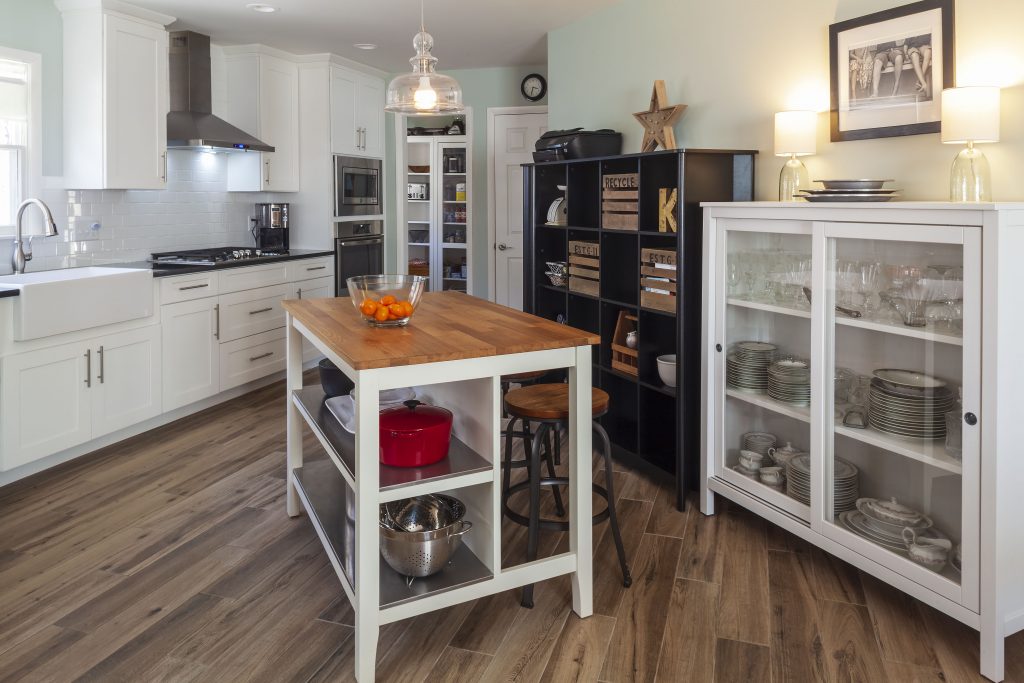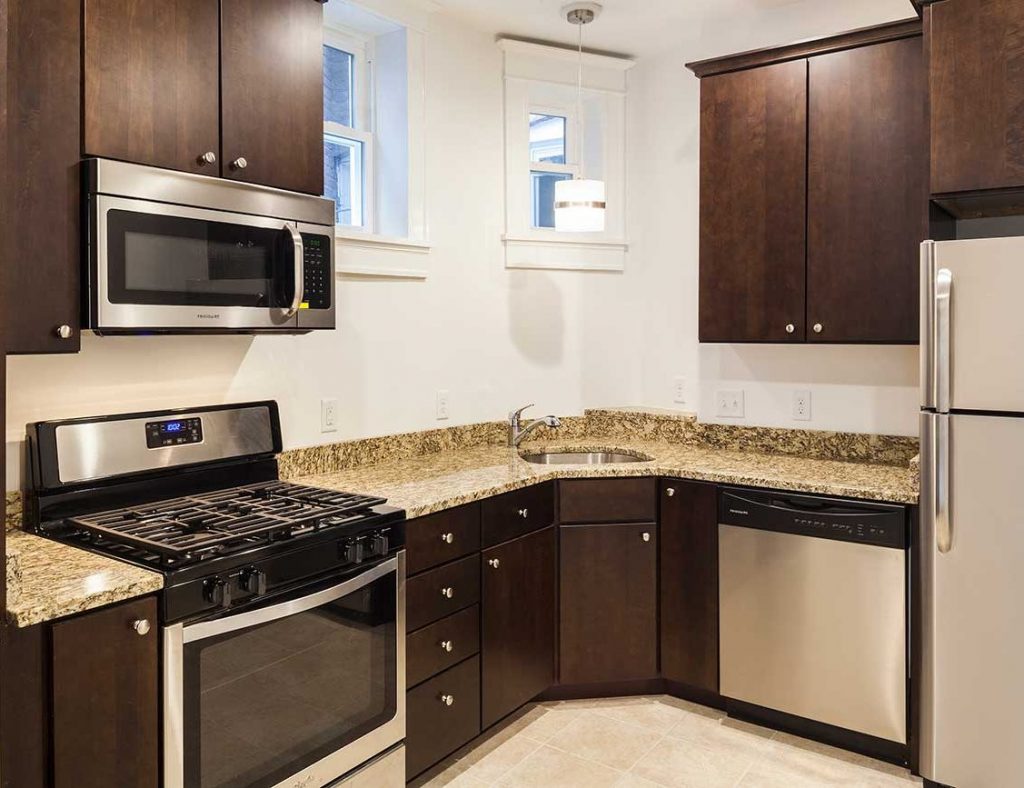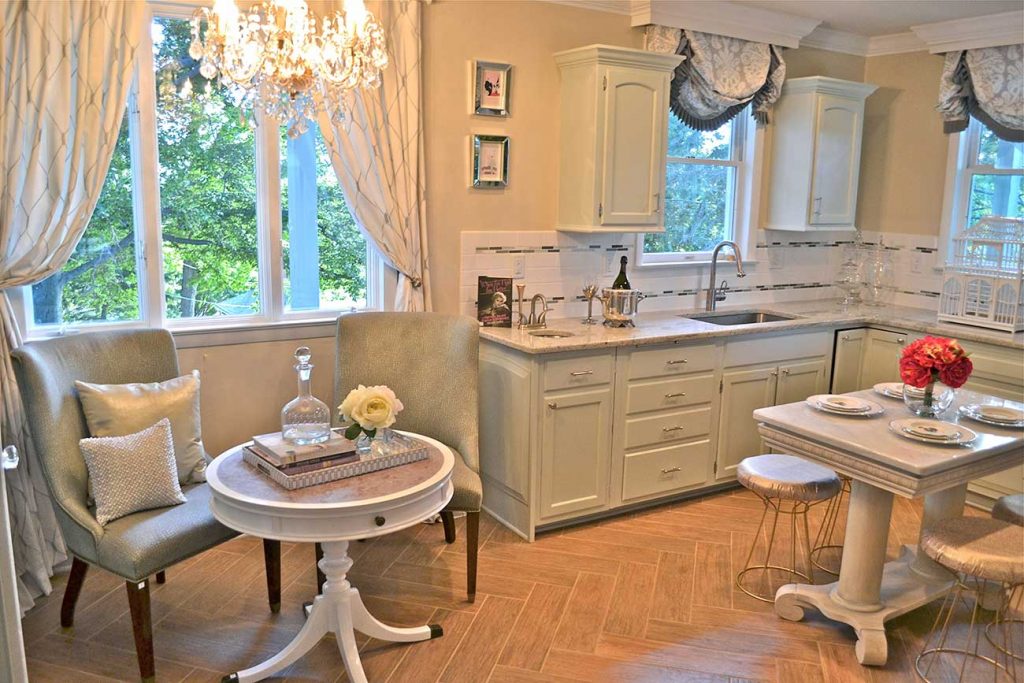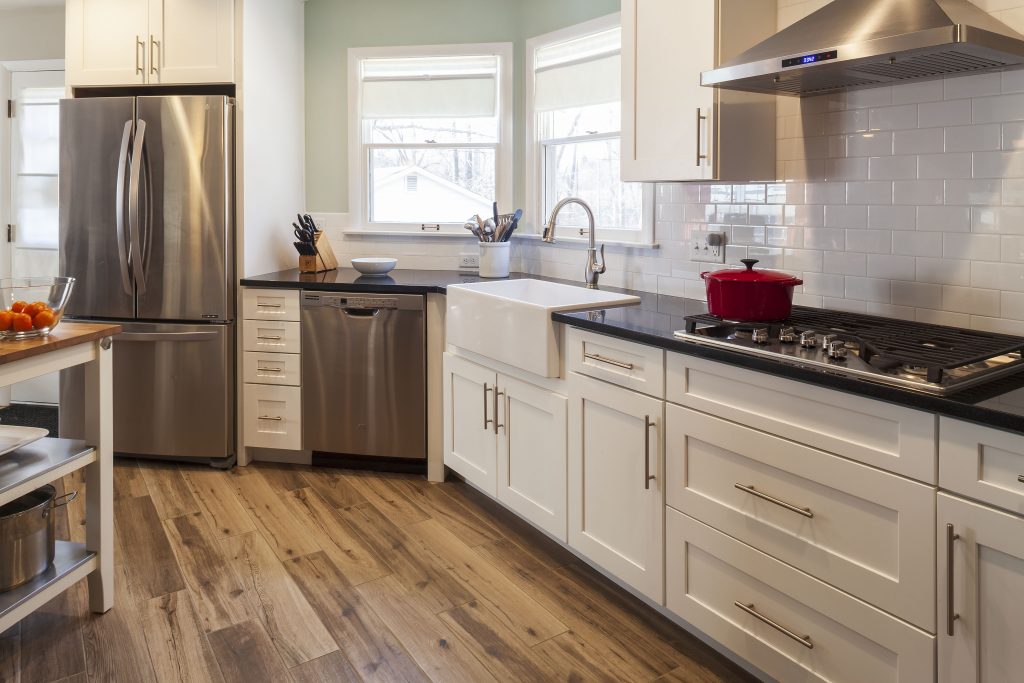
Are you thinking of remodeling your kitchen and incorporating more sustainability? Don’t be intimidated by a sustainable remodeling project: You have more options than you think! As concern for preserving the Earth’s resources—and saving your hard-earned money—increases, manufacturers of home and building supplies have been paying attention.
Creating a healthy and sustainable kitchen is easier with the help of an experienced remodeler willing to honor your vision for your home. T.W. Ellis was the first contractor in the country to certify a remodeling project under the National Green Building Standard. We are a certified and accredited green builder/remodeler and designated as such by some of the leading certification organizations in the country: The National Green Building Standard (NGBS) and the National Association of Home Builders (NAHB).
Elements to Consider During a Sustainable Kitchen Remodel
- Water Usage
- Electricity
- Sustainability of Materials. Recycled, reclaimed, and secondhand options are wonderful.
- Low Chemical Exposure
- Purchasing high quality items is crucial. Constantly replacing items is not sustainable.
Cabinets and Flooring
One of the largest statements, and expenses, of a kitchen remodel is the cabinetry. Why not refurbish older wooden cabinetry? By sanding it down and painting it with low VOC/ no VOC (Volatile Organic Compounds) paints or finishes, you can save money and have beautiful new cabinets at a fraction of the cost. You can even integrate the newest color trends by selecting a bold color for your cabinets. If you can get your hands on some reclaimed wood, you’ll have cabinets with a ton of character that can last a lifetime.
Metal cabinets can be wonderful replacements for traditional wood or wood composite cabinets that can sometimes off-gas formaldehyde or other carcinogenic chemicals. Stainless steel is another material that is more sustainable than most options and can last virtually forever. There are also cabinets available made from recycled or sustainable materials.
Your kitchen’s flooring is another statement piece in the kitchen. Whether you choose bamboo, FSC certified wood, tiles made from recycled composites, cork, or linoleum be sure that the adhesives, sealants, and any finishes used on your floor are low VOC.
Fixtures and Lighting
The trend of mixing metals in the kitchen is a perfect excuse to go antiquing for used metal hardware for cabinets and drawers. Secondhand light fixtures are attractive options too. Keep in mind that some of these fixtures may use more power than new LED lighting, but by purchasing fixtures that aren’t brand new, you are saving the energy used to make something new. LEDs are the most efficient option for lighting besides natural light. If you are doing a lot of structural changes to your kitchen, it would be an ideal time to install a skylight or increase the number or size of windows. Natural lighting is beautiful, and better windows can increase ventilation, improving indoor air quality.
Countertops and Sinks
Stone countertops use natural materials, and the finishing process of making stone useable requires large amounts of water. Counters that use sustainable materials include the increasingly popular and versatile concrete, recycled glass, quartz composite, or recycled paper composite. You can use reclaimed wood if you don’t mind the character it will develop over time. All of these sustainable counter options have a ton of distinctive charm due to their unique looks.

Your kitchen sink is another item in the kitchen that has an impact on energy usage. First of all, manufacturing new sinks can use a significant amount of resources. Secondly, low-flow faucets are an absolute must in a sustainable kitchen. Saving water is one of the most important considerations to make during a sustainable kitchen or bathroom remodel. Sinks made from recycled materials like aluminum, bronze, copper, or concrete are great alternatives to a brand-new sink.
Appliances
Using a dishwasher uses less water than hand washing dishes but shop for the most efficient model you can afford. Replace old appliances with Energy Star certified appliances. Refrigerators have come a long way; however, if you break the budget buying the largest model on the market, you are not optimizing sustainability. After all, the more food you refrigerate, the higher the energy cost, not to mention potential food waste!
Electric stoves and ovens are now more efficient than gas. Induction cooking is the most efficient type of stove you can buy. Because the heat is generated magnetically, only where the pan touches the burner, there is zero waste of energy in induction cooking. Just make sure your pans are stainless or cast iron so that they magnetize.

Can you picture your new sustainable kitchen yet? The air is fresh and healthy, the light is marvelous, and you have a sense that you are tending to your small corner of the world in a way that reduces harm. You will also enjoy lower energy bills for a long time to come. What a great investment! If you are ready to get started, contact T.W. Ellis today!

